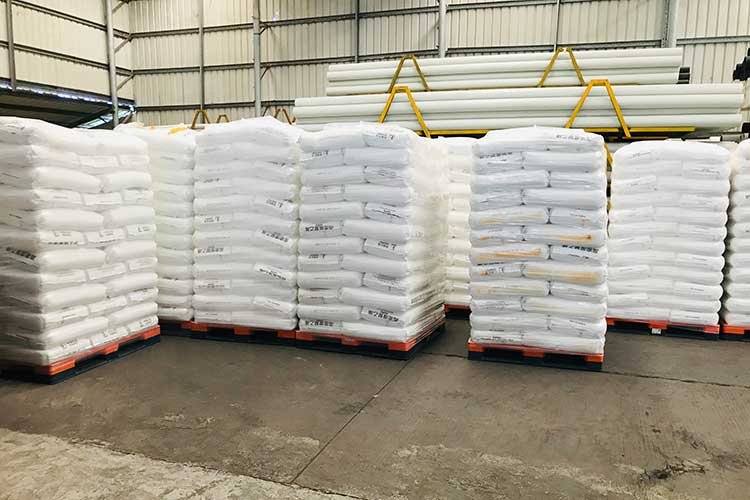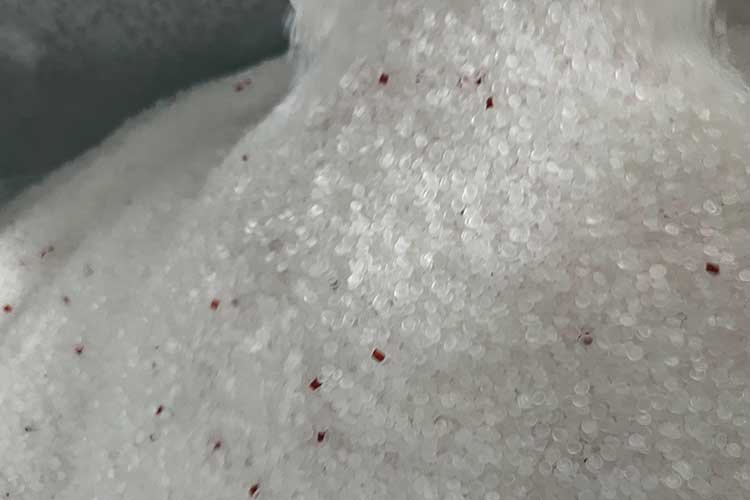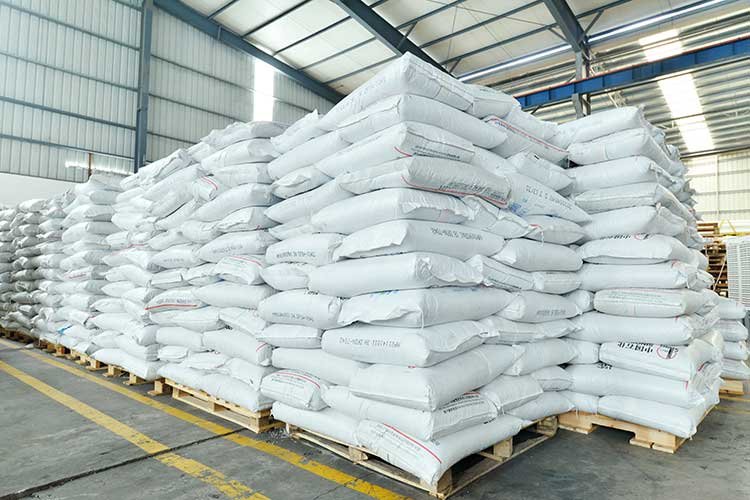There are many PE materials to choose from when manufacturing aluminum plastic pipes. One of the most commonly used plastic materials is PE.
So, what is it exactly? What makes this PE so unique? That’s exactly what we’re going to explore – read on.

What is PE?
PE is a widely used thermoplastic made from ethylene monomers through polymerization. It is one of the most produced plastics in the world and is widely used due to its excellent properties and diverse applications.

Type of PE
- Low-density polyethylene (LDPE): has a large number of branched chains, which makes its molecules loosely arranged and has a lower density. LDPE is often used to make products that require flexibility and transparency, such as films, plastic bags, and certain types of containers.
- Linear low-density polyethylene (LLDPE): Compared with LDPE, LLDPE has fewer short chain branches and more regular molecular arrangement, which enables it to have better tensile strength and tear resistance while maintaining a certain degree of flexibility. It is often used in the production of films, pipes, etc.
- Medium density polyethylene (MDPE): The density is between LDPE and HDPE, providing a certain degree of rigidity and good flexibility. Suitable for occasions with less stringent requirements such as gas pipelines.
- High-density polyethylene (HDPE): has the fewest branches and the most tightly packed molecules, so it has the highest density. HDPE is known for its high strength, hardness and chemical resistance, and is widely used in piping systems, storage tanks, bottles and other products that require durability.
The main Properties of PE

Chemical Properties
- Wide range of densities: Depending on its type (such as LDPE, LLDPE, MDPE and HDPE), the density of polyethylene can vary from 0.91 to 0.97 g/cm³, which directly affects the material’s hardness, flexibility and other physical properties.
- Good flexibility: Especially low-density polyethylene (LDPE) and linear low-density polyethylene (LLDPE), which are very soft and easy to process into films or other shapes.
- High tensile strength: Especially for high-density polyethylene (HDPE), it has high tensile strength and rigidity, which is suitable for application scenarios that need to withstand greater pressure.
- High tensile strength: Especially for high-density polyethylene (HDPE), it has high tensile strength and rigidity, which is suitable for application scenarios that need to withstand greater pressure.
Physical Properties
- Excellent chemical resistance: Polyethylene has good resistance to most acids, alkalis, salt solutions and alcohols, but is less resistant to aliphatic hydrocarbon solvents, oils and oxidants.
- Good electrical insulation: Due to its low electrical conductivity, polyethylene is widely used in cable sheathing and electrical insulation materials.
Environment and durability
- Water resistance and moisture barrier properties: Polyethylene has excellent water resistance, making it an ideal choice for packaging food and other items that are susceptible to moisture.
- Ultraviolet (UV) stability: Although polyethylene in its basic form is sensitive to UV rays and susceptible to aging, its weatherability for outdoor use can be improved by adding stabilizers.
- Environmental Stress Crack Resistance: Certain types of polyethylene, particularly HDPE, exhibit excellent resistance to environmental stress cracking, extending service life.

Applications of PE
The main use of PE lies in its chemical resistance. Its biggest advantage is that it can be used to manufacture complex pipes without compromising quality.
Some of the most common uses of PE include:
- Pipeline system: production of water supply and drainage pipelines, gas pipelines, due to strong corrosion resistance and good pressure resistance, widely used in construction and municipal engineering.
- Power system: As cable sheath, it protects the cable from damage by the external environment.
- Agriculture: Used to make drip irrigation pipes, which can save water significantly.
- Packaging field: production of plastic bags and cling film, because they are soft, transparent and have a certain degree of ductility, they are suitable for packaging food, daily necessities, etc.
Conclusion
Obviously, PE is the perfect choice for municipal pipes. This is mainly due to its excellent physical properties, as well as its corrosion resistance.
At JUNTONG, we manufacture different pipes according to your unique requirements and specifications. Whether you need PE or any other material, we are your trusted partner in China – contact us today.